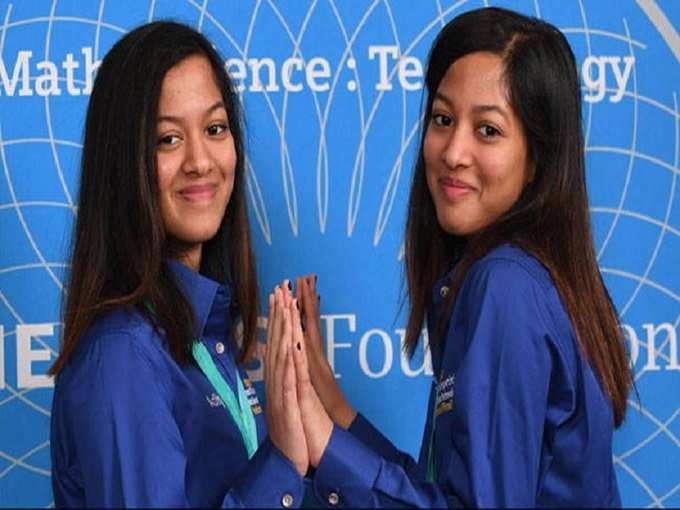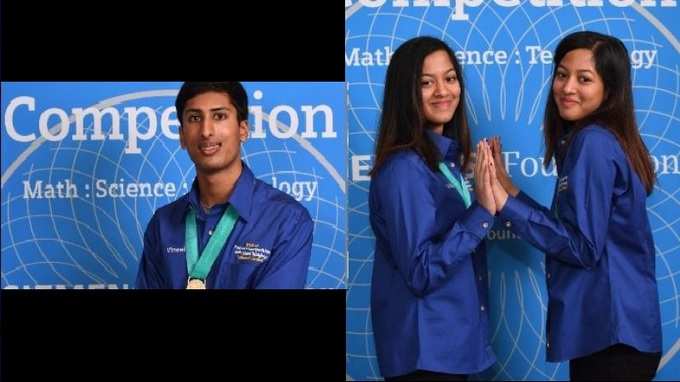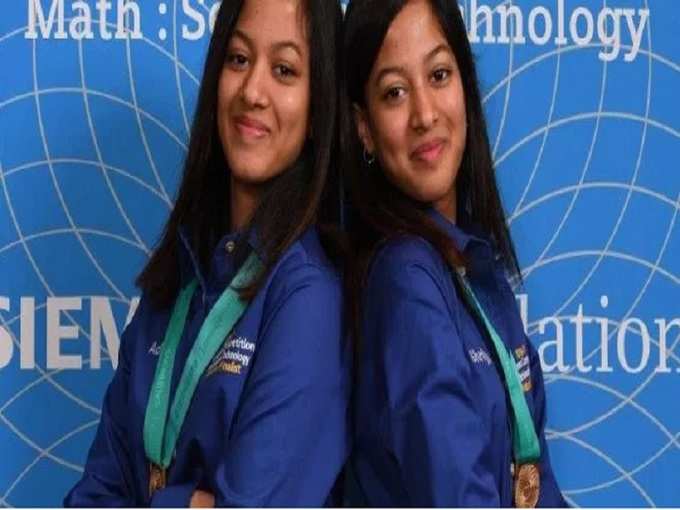 Three Indian-origin teenagers in the US have bagged a scholarship worth $2,00,000 in the 17th annual Siemens Math, Science and Technology Competition, for their innovative research that will help doctors diagnose health problems, including
Three Indian-origin teenagers in the US have bagged a scholarship worth $2,00,000 in the 17th annual Siemens Math, Science and Technology Competition, for their innovative research that will help doctors diagnose health problems, including Out of the three winners, two are sixteen-year-old twin sisters

Meanwhile, the third winner
Edupuganti’s, which he calls a "high-performance biodegradable battery for transient electronics," was appreciated by the judges at the contest. It holds the potential of simplifying how medical practitioners diagnose conditions that affect internal organs, such as gastrointestinal disorders, that currently require complex imaging or invasive procedures to diagnose.
For the Beesams, it's more of a personal story... Beesams, it's more of a personal story...

They lost their uncle to schizophrenia years ago. Their uncle was misdiagnosed for several years before eventually being diagnosed as schizophrenic. The twins say the late diagnosis and delay of care contributed to his suicide.
"People diagnosed with schizophrenia are fifty per cent more likely to commit or attempt suicide," Shriya said. The Beesams say the loss of the uncle served as motivation during their research and work.
"It was amazing after we won when a mother came up to me and thanked us for our work because her son has schizophrenia and shes happy to see people talking about the disease," Adhya said.
“These scholars are poised to transform the lives of millions around the globe... I cannot wait to see where their dedication and innovative thinking will lead them and the rest of us as well,”